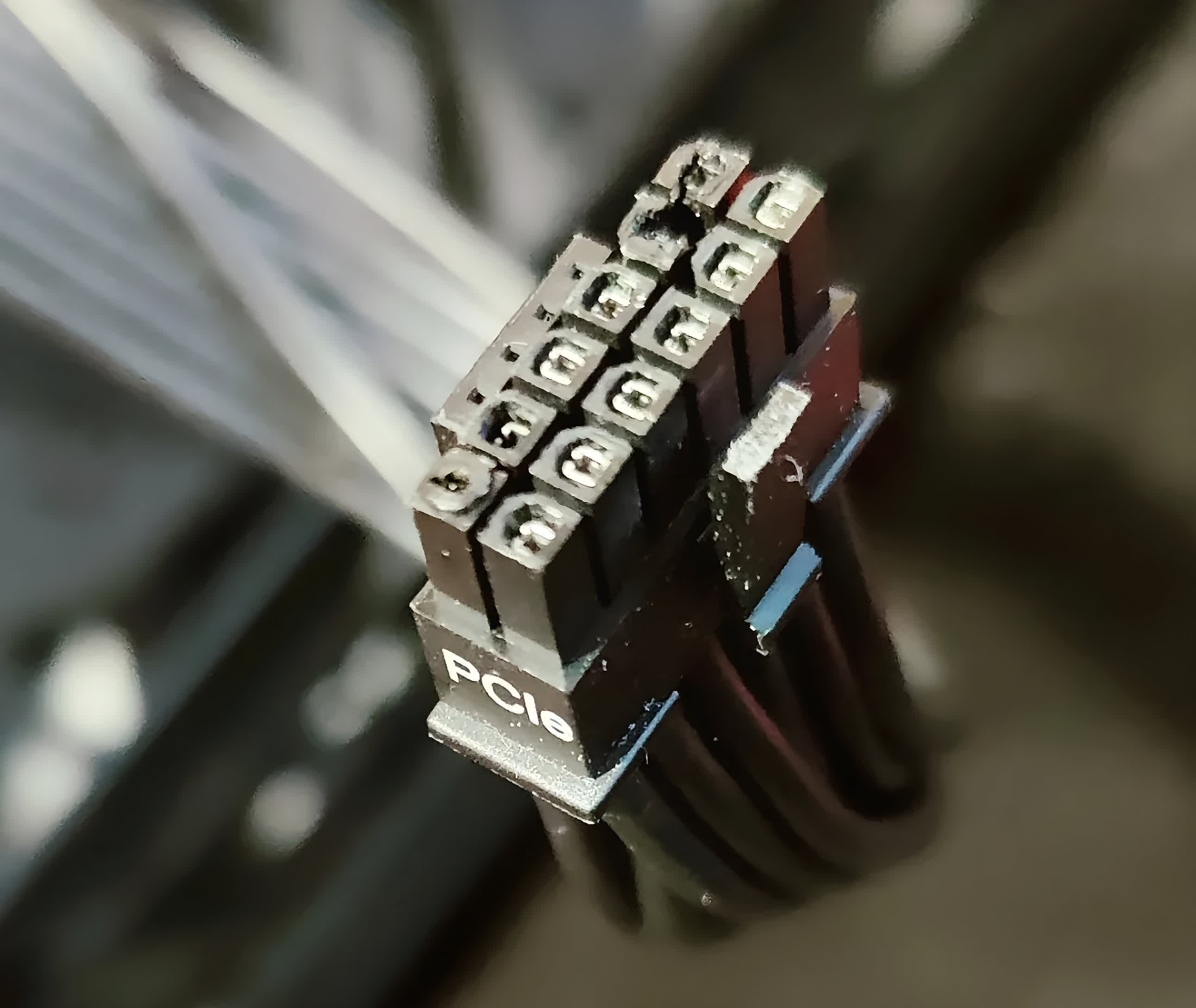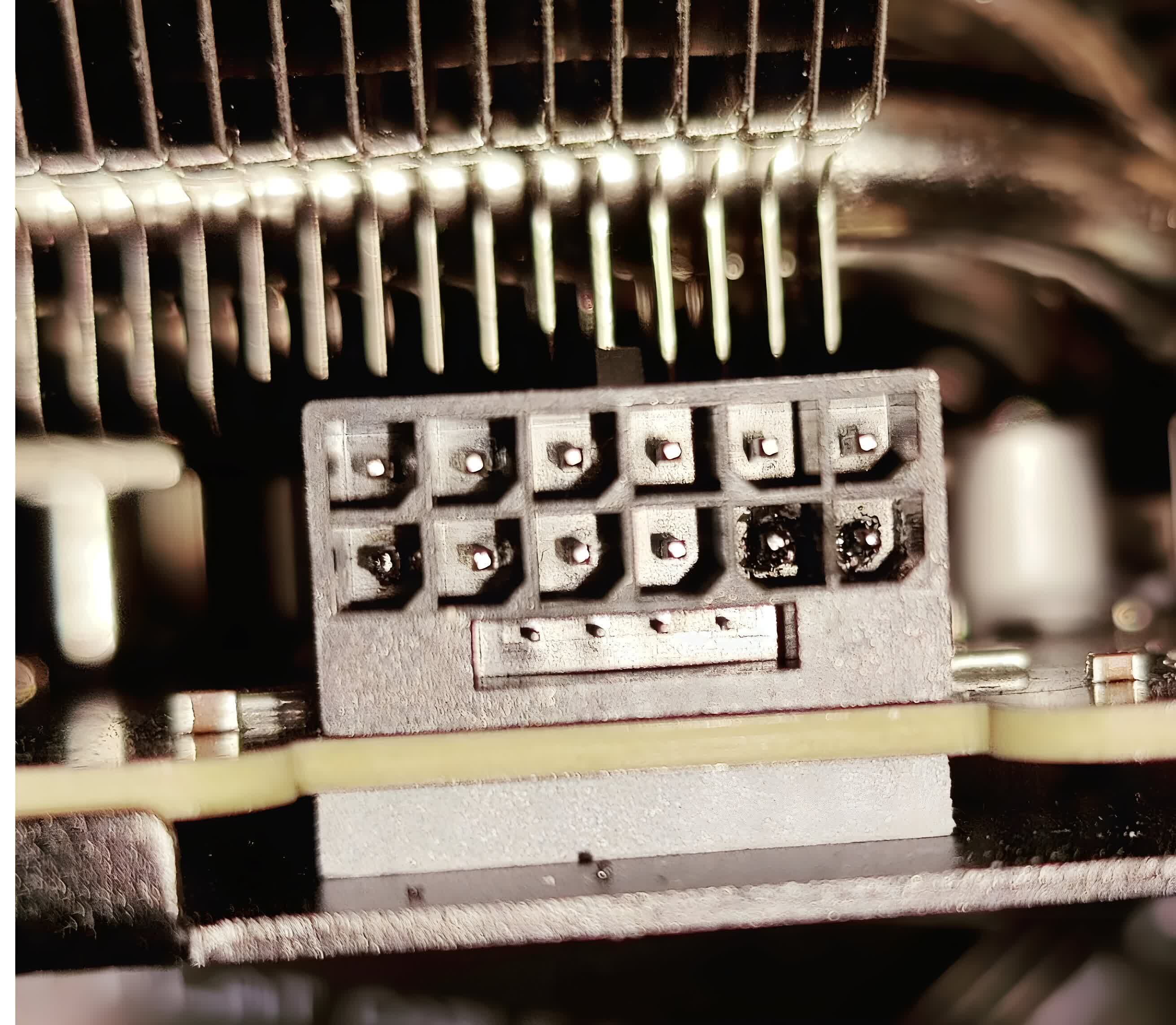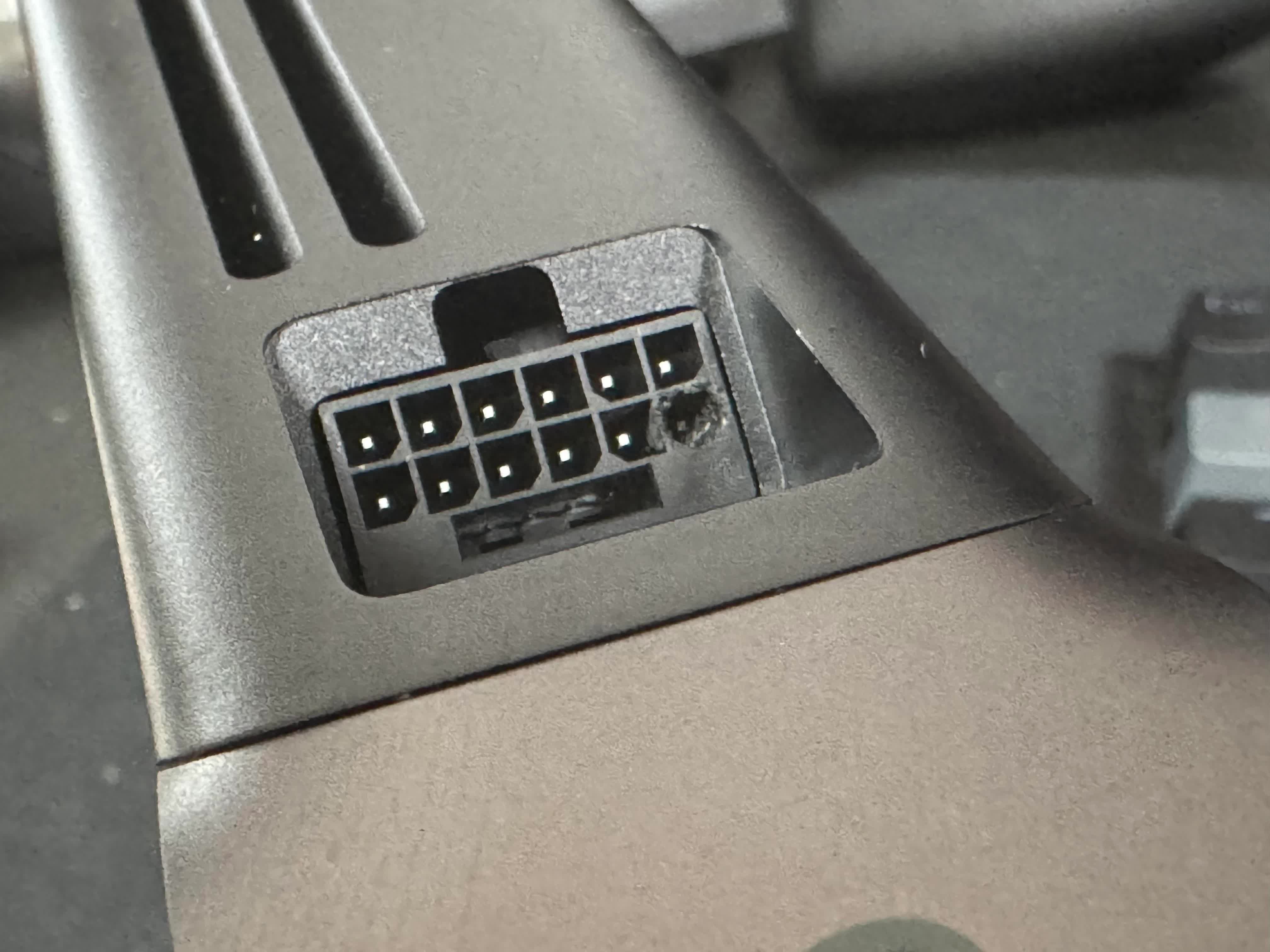Facepalm: Picture this: securing a $3,000+ RTX 5090 in advance, bypassing the scalpers, only to have the connectors on the card and cable melt. This is not an isolated case—another incident has surfaced, with both the connectors of the 12VHPWR cable, the graphics card, and the PSU suffering from severe burn damage.
The latest report, shared by a Reddit user named Roachard, involves an MSI RTX 5090 Gaming Trio OC. Purchased from Best Buy around a month ago for just over $3,000, the card was paired with a Corsair SF1000L PSU on an Asus Strix B650E-I motherboard. This power supply, an 80 Plus Platinum model compliant with ATX 3.0 standards, is priced at $230 on Amazon—clearly a high-quality, robust unit, not an underpowered budget model.

Roachard mentions that the cable was directly connected to the PSU, with no extension cords involved. Importantly, he was not overclocking the RTX 5090 when the issue occurred.
Initially, Roachard thought the damage was confined to the GPU side—the cable and card connectors—but he soon discovered that the PSU end had also suffered. A troubling bulge was visible in the connector plugged into the PSU, where the plastic had melted, accompanied by a cable that had burned and turned white.

In a similar incident from February, a third-party cable used with an RTX 5090 also melted, damaging both the card and the PSU. The faulty cable in question was from Moddiy, a brand that claimed to offer an ATX 3.0, PCIe 5.0 16-pin to 16-pin model capable of handling up to 600W with the newer 12V-2X6 design. Despite these claims, the cable was not robust enough to handle the load.

Roachard used the original 12VHPWR cable rated for 600W that came with the PSU. He assumed that using only the official cables would prevent such problems, but clearly, this was not the case.
This issue is not unique to the RTX 5090—there have been several reports of cables and connectors melting with both the RTX 5090 and the RTX 5080, bringing to mind the widespread problems with the RTX 4090. The most common cause of these issues with earlier models was improper cable insertion, with stiff cables preventing a proper connection. To address this, the 12V-2X6 cable design was introduced to ensure better compatibility and reliability.
Earlier this year, overclocker Der8auer replicated one of these RTX 5090 cable melting incidents using a Corsair 12VHPWR cable. The results were troubling: the connectors reached 150°C on the PSU side and nearly 90°C on the GPU side, with an uneven distribution of power that caused some wires to carry over 20 amps while others carried as little as 2 amps. This imbalance contributed to the severe overheating and damage.

34 comments
204 likes and shares